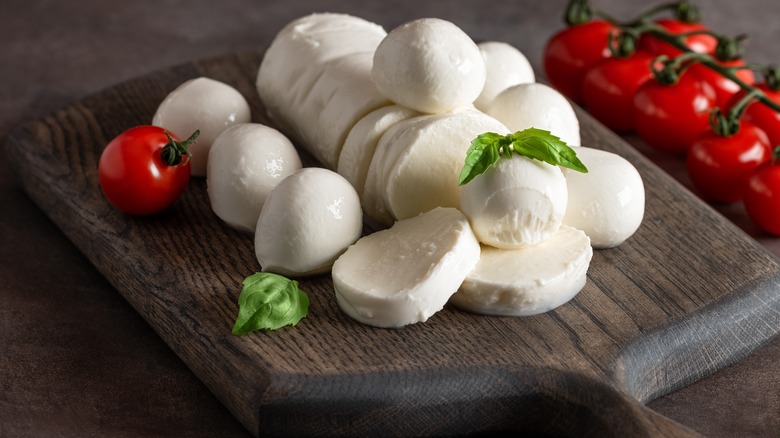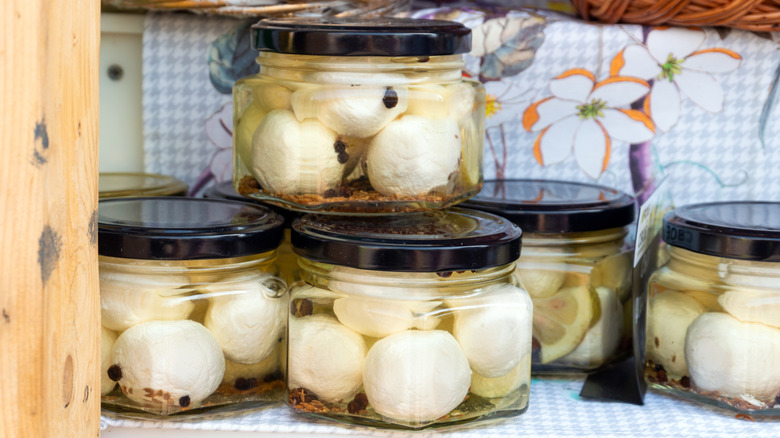You Can Freeze Fresh Mozzarella For Later, But There's A Catch
Whenever there's a great sale on a perishable product such as cheese, it's tempting to stock up and stick the excess in the freezer for later use. While you technically can freeze cheese, this may or may not be a good idea depending on what kind it is. Matthew Rose, one of the partners behind Fairfield and Greenwich Cheese Company, cautions that fresh mozzarella is a variety that may not be the best candidate for preserving at subzero temperatures.
As he explains, "Cheeses derive their structure from the organization of the fats and the proteins. Within the lattice of proteins and fats is moisture in the form of water, and when this structure is frozen and then thawed, the water expands and can damage the structural integrity and invariably leads to quality loss. Fresh mozzarella is a fresh cheese and has the highest amount of water content of any other cheese style and would be the most susceptible to damage by freezing and thawing."
While freezing will change the texture of fresh mozzarella, and not for the better, Rose said this doesn't apply to mozzarella that's been grated or shredded (you know, the kind that contains the dreaded wood pulp). "When you shred or grate a cheese, you are inherently disrupting the natural structure of the cheese, so the damage to the structure has been done, and additionally freezing and thawing will not make much more of a difference," he tells us. This type of frozen cheese is fine for melting on a pizza, but if you thaw fresh mozzarella meant for eating on its own or in a salad, Rose warns, "The quality loss will be significant."
Brining will buy you a few extra days without freezing
Cheesemonger Matthew Rose believes that fresh mozzarella should probably be acquired on the same day you want to eat it. The way he sees it, "Fresh cheeses should be purchased in appropriate quantities to ensure they are consumed quickly and entirely; they do not get better with time in your refrigerator." (This is in contrast to low-moisture aged cheeses such as cheddar, which absolutely do improve the longer they sit.) He does note, though, that you can buy a few extra days by storing fresh mozzarella in brine.
As Rose opined, "Fresh mozzarella should be sold in salt water brine to retain as much quality as possible in the time between purchase and consumption." He prefers this to plastic-wrapped mozzarella balls because he thinks that brined cheese has a creamier texture. You can always brine the cheese yourself, though, using about half a tablespoon of salt for each cup of water. Even so, though, you'll need to eat that cheese tout de suite. According to Rose, "The brine will protect the fresh mozzarella for a few days, instead of spoiling in a few hours ... but that is the limit of how well a brine will preserve a fresh, high-moisture cheese. Fresh cheeses: unaged, high-moisture cheese[s] have a high perishability, and there is not much you can do to stop that." Short of freezing, that is, but that should only be a last-resort option if you absolutely can't eat your fresh mozzarella before it spoils.

